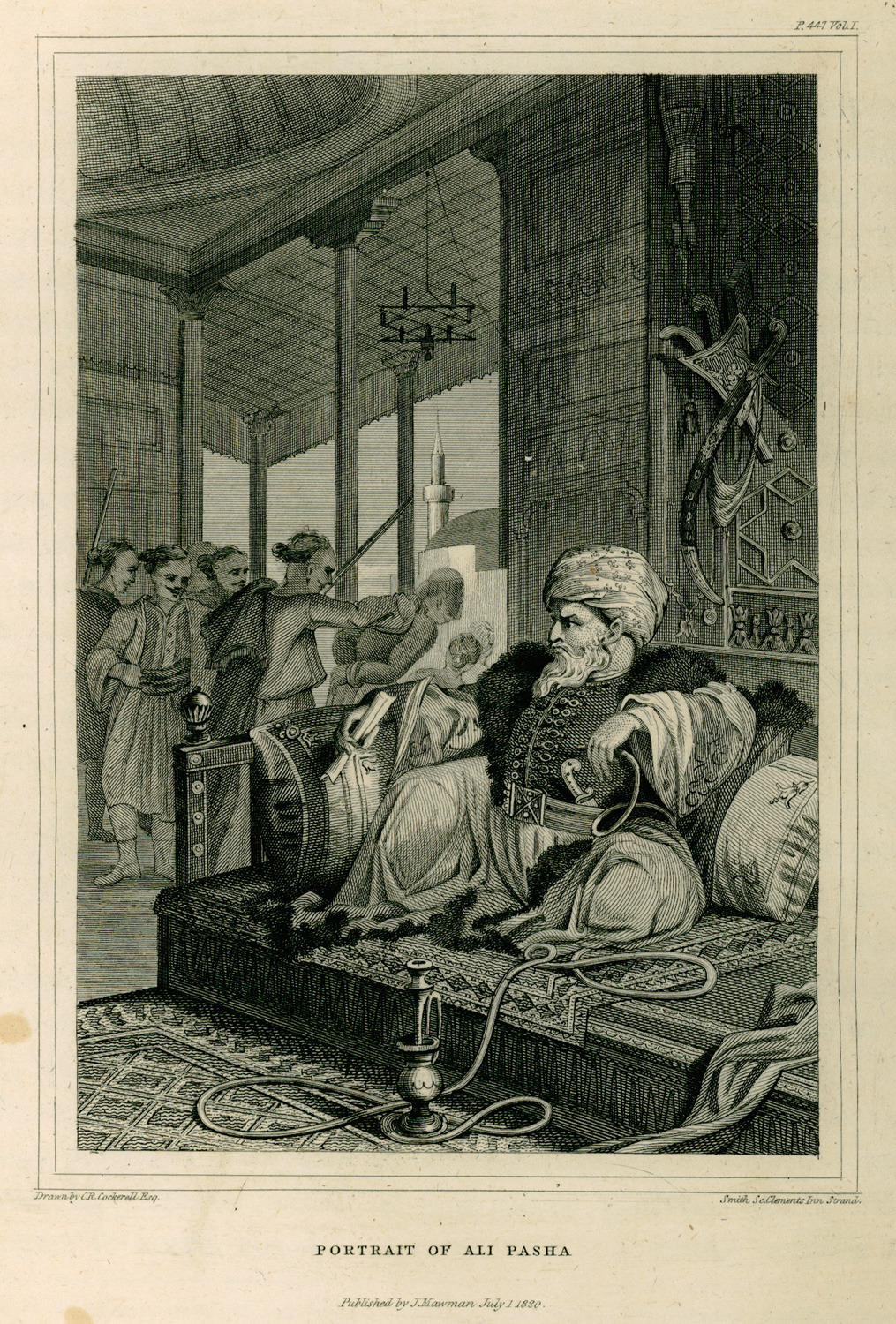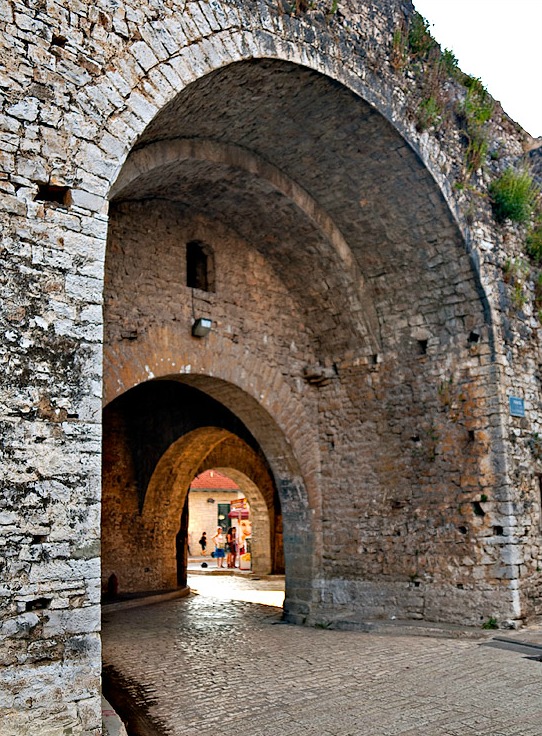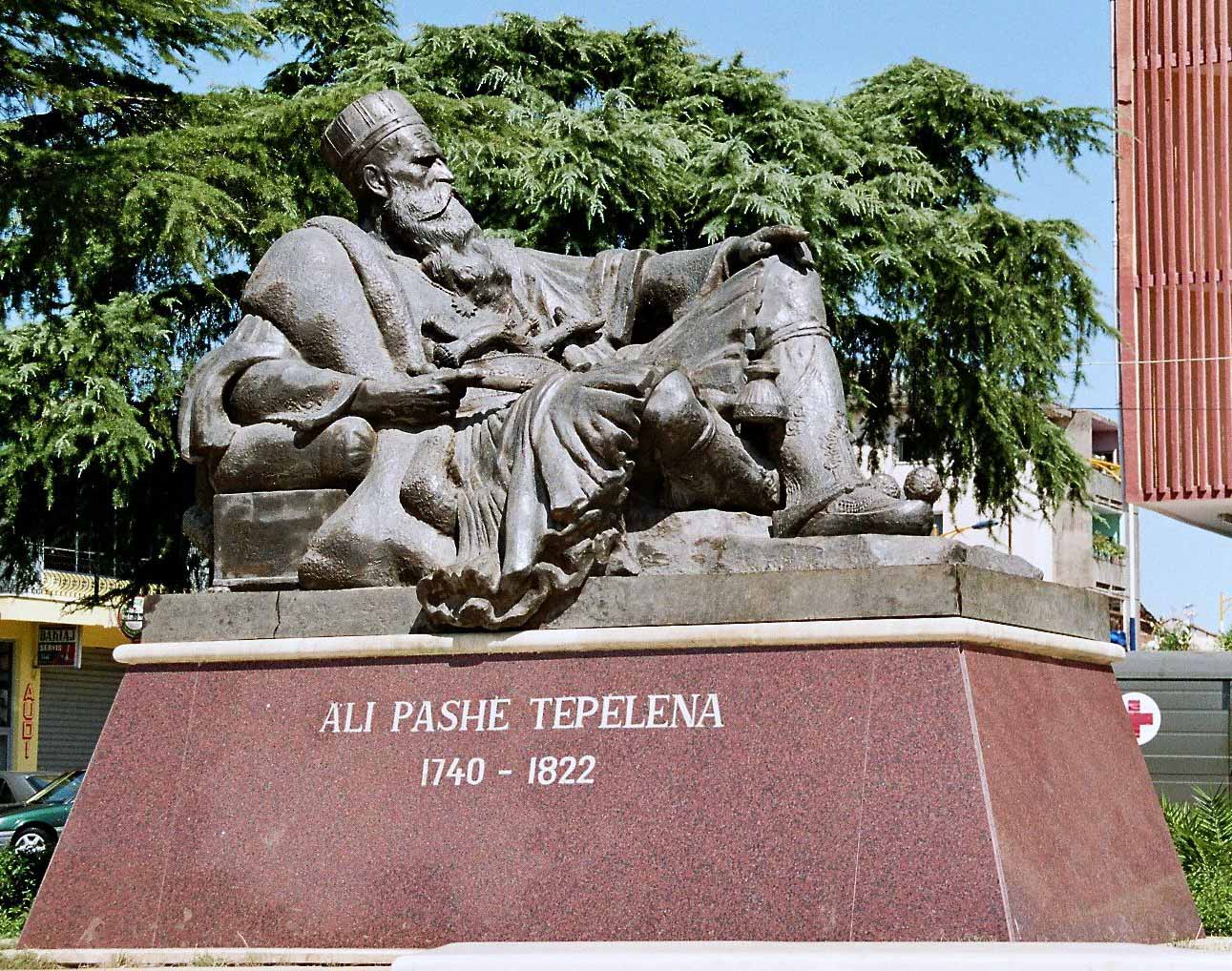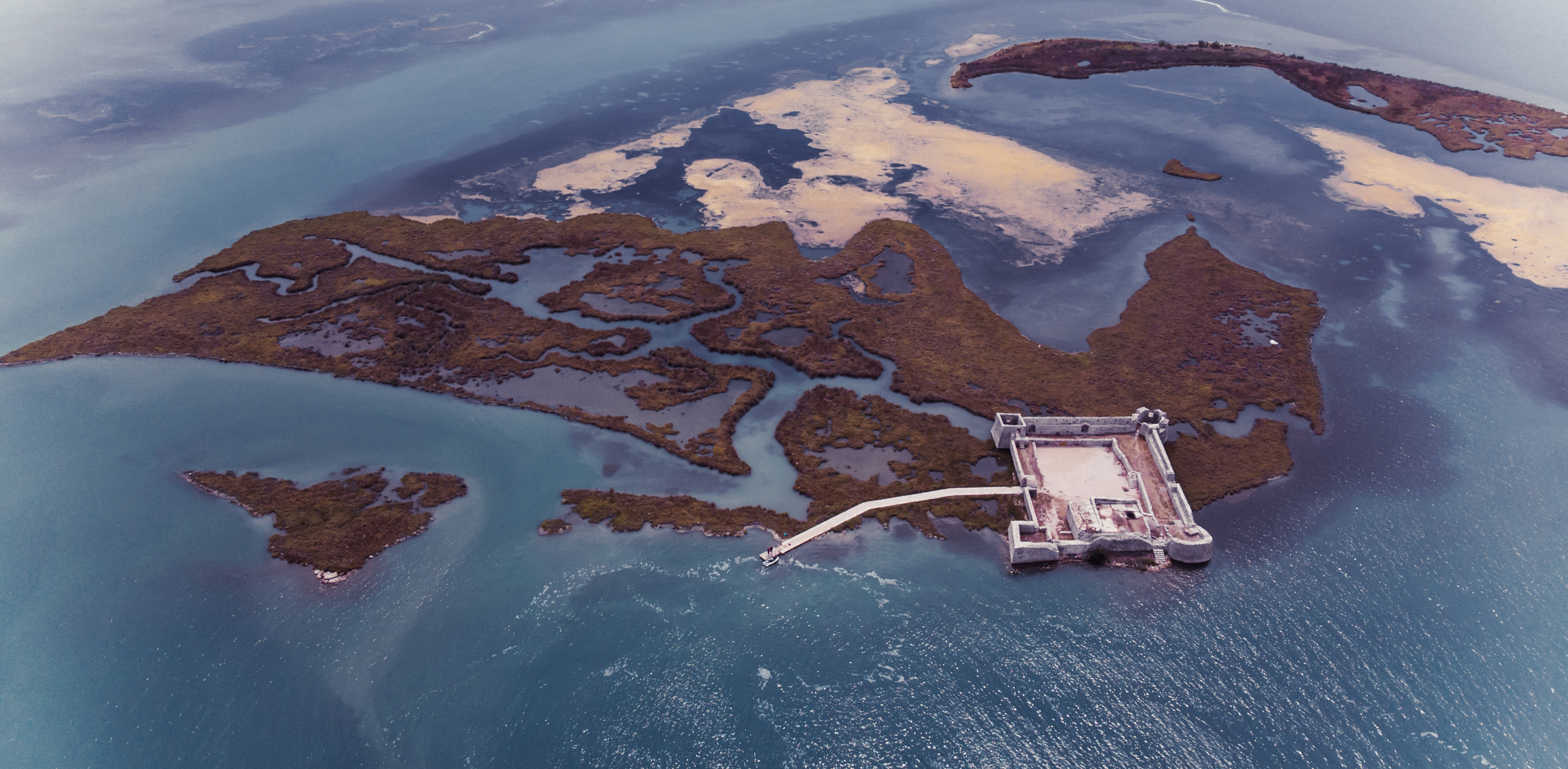|
Rilindja Kombëtare
The Albanian National Awakening ( or ), commonly known as the Albanian Renaissance or Albanian Revival, is a period throughout the 19th and 20th century of a cultural, political, and social movement in the Albanian history where the Albanian people gathered strength to establish an independent cultural and political life, as well as the country of Albania. Prior to the rise of nationalism, Albania remained under the rule of the Ottoman Empire for almost five centuries and the Ottoman authorities suppressed any expression of national unity or institutional national conscience by the Albanian people. There is some debate among experts regarding when the Albanian nationalist movement should be considered to have started. Some sources attribute its origins to the revolts against centralisation in the 1830s, others to the publication of the first attempt by Naum Veqilharxhi at a standardized alphabet for Albanian in 1844,Zhelyazkova, Antonina (2000). "Albanian Identities". Sofi ... [...More Info...] [...Related Items...] OR: [Wikipedia] [Google] [Baidu] |
Albanian History
During classical antiquity, Albania was home to several Illyrian tribes such as the Albanoi, Ardiaei, Bylliones, Dassaretii, Enchele, Labeatae, Taulantii, Parthini, Penestae, Amantes, and many others, but also Bryges and Epirote tribes, as well as several Greek colonies established on the Illyrian coast in cooperation with the local Illyrians, notably Epidamnos-Dyrrhachium and Apollonia. The Enchele's polity was the earliest to emerge and centered in Albania. Also the earliest known Illyrian king, Bardylis, emerged in what is now Albania around 400 BC, aiming to make Illyria a regional power interfering with Macedon. He united many southern Illyrian tribes under his realm and defeated the Macedonians and Molossians several times, expanding his dominion over Upper Macedonia and Lynkestis. Before the Rise of Macedon Illyrians were the dominant power in the region. The kingdom of the Taulantii under Glaukias' rule was based in central Albania and dominated southern Ill ... [...More Info...] [...Related Items...] OR: [Wikipedia] [Google] [Baidu] |
Pashalik Of Yanina
The Pashalik of Yanina, sometimes referred to as the Pashalik of Ioannina or Pashalik of Janina, was an autonomous pashalik within the Ottoman Empire between 1787 and 1822 covering large areas of Albania, Greece, and North Macedonia. Under the Ottoman Albanian ruler Ali Pasha, the pashalik acquired a high degree of autonomy and even managed to stay '' de facto'' independent, though this was never officially recognized by the Ottoman Empire. Conceiving his territory in increasingly independent terms, Ali Pasha's correspondence and foreign Western correspondence frequently refer to the territories under Ali's control as Albania. The capital of the Pashalik was Ioannina, which along with Tepelena were Ali's headquarters. At its peak, Ali Pasha and his sons ruled over southern and central Albania, the majority of mainland Greece, including Epirus, Thessaly, West Macedonia, western Central Macedonia, Continental Greece (excluding Attica), and the Peloponnese, and parts of so ... [...More Info...] [...Related Items...] OR: [Wikipedia] [Google] [Baidu] |
Ottoman Porte
The Sublime Porte, also known as the Ottoman Porte or High Porte ( or ''Babıali''; ), was a synecdoche or metaphor used to refer collectively to the central government of the Ottoman Empire in Istanbul. It is particularly referred to the building which housed the office of the Grand Vizier, Ministry of Foreign Affairs, Ministry of the Interior, and the Supreme Council of Judicial Ordinances. Today it houses the office of the Istanbul governerate. History The name has its origins in the old practice in which the ruler announced his official decisions and judgements at the gate of his palace. This was the practice in the Byzantine Empire and it was also adopted by Ottoman Turk sultans since Orhan I. The palace of the sultan, or the gate leading to it, therefore became known as the "High Gate". This name referred first to a palace in Bursa, Turkey. After the Ottomans had conquered Constantinople, now Istanbul, the gate now known as the Imperial Gate (), leading to the outermo ... [...More Info...] [...Related Items...] OR: [Wikipedia] [Google] [Baidu] |
Yannina
Ioannina ( ' ), often called Yannena ( ' ) within Greece, is the capital and largest city of the Ioannina regional unit and of Epirus, an administrative region in northwestern Greece. According to the 2021 census, the city population was 64,896 while the municipality had 113,978 inhabitants. It lies at an elevation of approximately above sea level, on the western shore of Lake Pamvotis (). Ioannina is located northwest of Athens, southwest of Thessaloniki and east of the port of Igoumenitsa on the Ionian Sea. The city's foundation has traditionally been ascribed to the Byzantine Emperor Justinian in the 6th century AD, but modern archaeological research has uncovered evidence of Hellenistic settlements. Ioannina flourished in the late Byzantine period (13th–15th centuries). It became part of the Despotate of Epirus following the Fourth Crusade and many wealthy Byzantine families fled there following the 1204 sack of Constantinople, with the city experiencing great pros ... [...More Info...] [...Related Items...] OR: [Wikipedia] [Google] [Baidu] |
Ali Pasha Of Yannina
Ali Pasha (1740 – 24 January 1822), commonly known as Ali Pasha of Yanina or Ali Pasha of Tepelena, was an Albanian ruler who served as Ottoman pasha of the Pashalik of Yanina, a large part of western Rumelia. Under his rule, it acquired a high degree of autonomy and even managed to stay '' de facto'' independent. The capital of the Pashalik was Ioannina, which, along with Tepelena, was Ali's headquarters. Conceiving his territory in increasingly independent terms, Ali Pasha's correspondence and foreign Western correspondence frequently refer to the territories under Ali's control as "Albania." This, by Ali's definition, included central and southern Albania, and parts of mainland Greece; in particular, most of the district of Epirus and the western parts of Thessaly and Macedonia. He managed to stretch his control over the sanjaks of Yanina, Delvina, Vlora and Berat, Elbasan, Ohrid and Monastir, Görice, and Tirhala. Ali was granted the Sanjak of Tirhala in 1787, a ... [...More Info...] [...Related Items...] OR: [Wikipedia] [Google] [Baidu] |
Pashalik Of Scutari
The Pashalik of Scutari (1757–1831), also known as the Bushati Pashalik, was an Albanian pashalik within the Ottoman Empire that was ruled by the Bushati family. Its capital was Shkodër and ruled areas in modern-day Albania and large majority of modern-day Montenegro. At its peak, during the reign of Kara Mahmud Bushati, the pashalik encompassed much of Albania and Kosovo, western Macedonia, southeastern Serbia, and most of Montenegro. Up to 1830, the Pashalik of Shkodra controlled most of the aforementioned lands (including southern Montenegro). Background The weakening of Ottoman central authority and the ''timar'' system of land ownership brought anarchy to the Albanian-populated region of the Ottoman empire. In the late eighteenth century, two Albanian centers of power emerged: Shkodër, under the Bushati family; and Janina, under Ali Pasha of Tepelenë. Both regions cooperated with and defied the Sublime Porte as their interests required. History The influence of ... [...More Info...] [...Related Items...] OR: [Wikipedia] [Google] [Baidu] |
British Empire
The British Empire comprised the dominions, Crown colony, colonies, protectorates, League of Nations mandate, mandates, and other Dependent territory, territories ruled or administered by the United Kingdom and its predecessor states. It began with the English overseas possessions, overseas possessions and trading posts established by Kingdom of England, England in the late 16th and early 17th centuries, and colonisation attempts by Kingdom of Scotland, Scotland during the 17th century. At its height in the 19th and early 20th centuries, it became the List of largest empires, largest empire in history and, for a century, was the foremost global power. By 1913, the British Empire held sway over 412 million people, of the world population at the time, and by 1920, it covered , of the Earth's total land area. As a result, Westminster system, its constitutional, Common law, legal, English language, linguistic, and Culture of the United Kingdom, cultural legacy is widespread. ... [...More Info...] [...Related Items...] OR: [Wikipedia] [Google] [Baidu] |
Napoleonic France
The First French Empire or French Empire (; ), also known as Napoleonic France, was the empire ruled by Napoleon Bonaparte, who established French hegemony over much of continental Europe at the beginning of the 19th century. It lasted from 18 May 1804 to 6 April 1814 and again briefly from 20 March 1815 to 7 July 1815, when Napoleon was exiled to Saint Helena. Although France had already established a colonial empire overseas since the early 17th century, the French state had remained a kingdom under the Bourbons and a republic after the French Revolution. Historians refer to Napoleon's regime as the ''First Empire'' to distinguish it from the restorationist '' Second Empire'' (1852–1870) ruled by his nephew Napoleon III. On 18 May 1804 (28 Floréal year XII on the French Republican calendar), Napoleon was granted the title Emperor of the French (, ) by the French and was crowned on 2 December 1804 (11 Frimaire year XIII), signifying the end of the French Consulate ... [...More Info...] [...Related Items...] OR: [Wikipedia] [Google] [Baidu] |
Ali Pasha Of Yanina
Ali Pasha (1740 – 24 January 1822), commonly known as Ali Pasha of Yanina or Ali Pasha of Tepelena, was an Albanian ruler who served as Ottoman pasha of the Pashalik of Yanina, a large part of western Rumelia. Under his rule, it acquired a high degree of autonomy and even managed to stay '' de facto'' independent. The capital of the Pashalik was Ioannina, which, along with Tepelena, was Ali's headquarters. Conceiving his territory in increasingly independent terms, Ali Pasha's correspondence and foreign Western correspondence frequently refer to the territories under Ali's control as "Albania." This, by Ali's definition, included central and southern Albania, and parts of mainland Greece; in particular, most of the district of Epirus and the western parts of Thessaly and Macedonia. He managed to stretch his control over the sanjaks of Yanina, Delvina, Vlora and Berat, Elbasan, Ohrid and Monastir, Görice, and Tirhala. Ali was granted the Sanjak of Tirhala in 17 ... [...More Info...] [...Related Items...] OR: [Wikipedia] [Google] [Baidu] |
Ali Vizier Of Albanien, Also Called Pacha Of Jannina - Friedel Adam De - 1832
Ali ibn Abi Talib (; ) was the fourth Rashidun caliph who ruled from until his assassination in 661, as well as the first Shia Imam. He was the cousin and son-in-law of the Islamic prophet Muhammad. Born to Abu Talib ibn Abd al-Muttalib and Fatima bint Asad, Ali was raised by his elder cousin Muhammad and was among the first to accept his teachings. Ali played a pivotal role in the early years of Islam when Muslims were severely persecuted in Mecca. After immigration () to Medina in 622, Muhammad gave his daughter Fatima to Ali in marriage and swore a pact of brotherhood with him. Ali served as Muhammad's secretary and deputy in this period, and was the flag bearer of his army. Numerous sayings of Muhammad praise Ali, the most controversial of which was uttered in 632 at the Ghadir Khumm, "Whoever I am his , this Ali is his ." The interpretation of the polysemous Arabic word is disputed: For Shia Muslims, Muhammad thus invested Ali with his religious and political authori ... [...More Info...] [...Related Items...] OR: [Wikipedia] [Google] [Baidu] |
Greek War Of Independence
The Greek War of Independence, also known as the Greek Revolution or the Greek Revolution of 1821, was a successful war of independence by Greek revolutionaries against the Ottoman Empire between 1821 and 1829. In 1826, the Greeks were assisted by the British Empire, Bourbon Restoration in France, Kingdom of France, and the Russian Empire, while the Ottomans were aided by their vassals, especially by the Eyalet of Egypt. The war led to the formation of modern Greece, which would be expanded to its modern size in later years. The revolution is celebrated by Greek diaspora, Greeks around the world as Greek Independence Day, independence day on 25 March. All Greek territory, except the Ionian Islands, the Mani Peninsula, and mountainous regions in Epirus, came under Ottoman rule in the 15th century. During the following centuries, there were Ottoman Greece#Uprisings before 1821, Greek uprisings against Ottoman rule. Most uprisings began in the independent Greek realm of the Mani Pe ... [...More Info...] [...Related Items...] OR: [Wikipedia] [Google] [Baidu] |
Christians
A Christian () is a person who follows or adheres to Christianity, a monotheistic Abrahamic religion based on the life and teachings of Jesus Christ. Christians form the largest religious community in the world. The words '' Christ'' and ''Christian'' derive from the Koine Greek title (), a translation of the Biblical Hebrew term '' mashiach'' () (usually rendered as ''messiah'' in English). While there are diverse interpretations of Christianity which sometimes conflict, they are united in believing that Jesus has a unique significance. The term ''Christian'' used as an adjective is descriptive of anything associated with Christianity or Christian churches, or in a proverbial sense "all that is noble, and good, and Christ-like." According to a 2011 Pew Research Center survey, there were 2.3 billion Christians around the world, up from about 600 million in 1910. Today, about 37% of all Christians live in the Americas, about 26% live in Europe, 24% live in sub-Saharan Afric ... [...More Info...] [...Related Items...] OR: [Wikipedia] [Google] [Baidu] |









